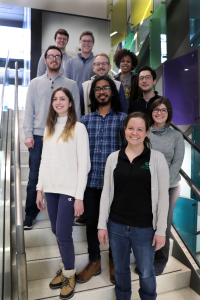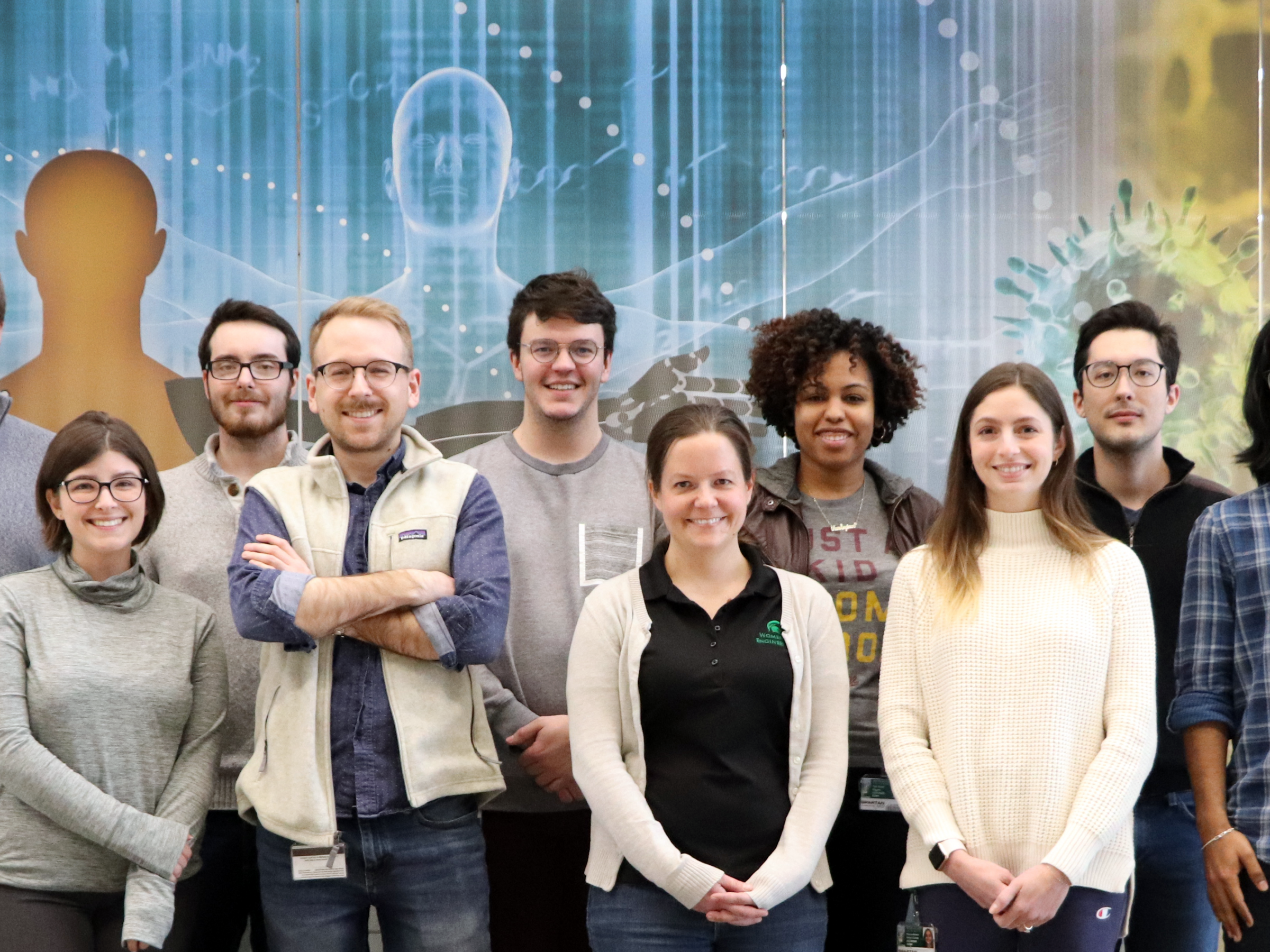A biomedical engineer at Michigan State University will use a National Science Foundation Faculty Early Career Development (CAREER) Award to improve the biocompatibility and performance of brain implants.
Erin Purcell will advance the understanding of neurological diseases and injuries by studying the design and long-term device performance of brain electrodes. The five-year, $550,000 project begins in 2020.
 Purcell is an assistant professor of biomedical engineering, and electrical and computer engineering at MSU.
Purcell is an assistant professor of biomedical engineering, and electrical and computer engineering at MSU.
“Neurological diseases and injuries can result from faulty or interrupted signaling between networks of brain cells,” Purcell said. “The development of implanted electrodes, which are medical devices capable of ‘write-in’ or ‘read-out’ of electrical signals to and from the brain, have created a renaissance in neurological treatments. Once implanted, however, the body often recognizes the device as a foreign object,” she explained.
Purcell said tissue response to the implant often results in a build-up of scar tissue and the loss of signal-generating cells surrounding the device.
“My research will look at what impacts the long-term device performance and how design influences the electrodes.”
Purcell will pursue new techniques in molecular biology and RNA-sequencing, assessing changes in the expression of thousands of genes surrounding devices.
“I’m hoping to predict device performance using new biological markers by analyzing the data in combination with detected signal quality. In turn, electrode design choices will be systematically tested to determine the influence of materials and dimensions on these biological markers.”
Cort Thompson, who is a second-year PhD student in biomedical engineering working under Purcell’s mentorship, will be funded by the NSF CAREER Award. His thesis work will focus on understanding the interaction between gene expression and electrode design attributes. Wen Li, associate professor of electrical and computer engineering, will provide critical expertise in microelectrode fabrication, Purcell said.
Additionally, the NSF grant will support the creation of a new peer-mentoring program for undergraduate women interested in biomedical engineering.
 Purcell joined MSU in August 2016 as an assistant professor and the first faculty member in MSU’s Department of Biomedical Engineering. She currently serves as chairperson of the graduate studies committees for the College of Engineering, and she is a member of the biomedical engineering curriculum committee.
Purcell joined MSU in August 2016 as an assistant professor and the first faculty member in MSU’s Department of Biomedical Engineering. She currently serves as chairperson of the graduate studies committees for the College of Engineering, and she is a member of the biomedical engineering curriculum committee.
She has received three NIH grants totaling more than $2.5 million as lead principal investigator and recently received a supplementary NIH grant to understand the genetic basis of device-tissue interaction.
In May 2019, Purcell became part of MSU academic history when her doctoral student Joseph Salatino, who had worked with her in the Regenerative Electrode Interface Lab, became MSU’s first PhD graduate in biomedical engineering.
In February 2020, she received an MSU Teacher-Scholar Award, a university honor presented to faculty who, early in their careers, have earned the respect of students and colleagues for their devotion to and skill in teaching, and whose instruction is linked to and informed by their research and creative activities.
Purcell is the 20th faculty member in the College of Engineering to receive an NSF CAREER Award since 2010. NSF CAREER Awards support junior faculty who exemplify the role of teacher-scholars through outstanding research and education. It is among NSF’s most prestigious honors.
- Via Engineering Communications, Pat Mroczek


